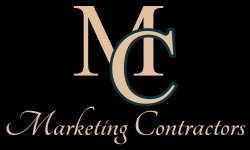When it comes to digital marketing, businesses often struggle to decide between Search Engine Optimization (SEO) and Pay-Per-Click (PPC) advertising. Both strategies have their own benefits and challenges, and choosing the right one depends on your business goals, budget, and timeline. In this blog, we’ll compare SEO and PPC to help you determine which strategy best suits your needs.
Understanding SEO
SEO focuses on optimizing your website to improve its organic search engine rankings. By using keyword research, content marketing, and technical SEO, businesses can increase their visibility on search engines like Google and Bing.
Benefits of SEO:
- Cost-Effective: Unlike PPC, SEO doesn’t require direct payment for clicks.
- Long-Term Growth: Organic rankings improve over time and generate consistent traffic.
- Higher Credibility: Users tend to trust organic search results more than paid ads.
- Better User Experience: SEO includes optimizing site speed, mobile-friendliness, and content quality, improving user engagement.
Challenges of SEO:
- Time-Consuming: Results can take months to materialize.
- Algorithm Changes: Search engines frequently update their algorithms, requiring ongoing optimization.
- Competitive: Ranking for high-volume keywords can be challenging in competitive industries.
Understanding PPC
PPC advertising involves paying for ads to appear in search engine results, social media platforms, or display networks. Google Ads and Bing Ads are common PPC platforms.
Benefits of PPC:
- Instant Results: Unlike SEO, PPC delivers immediate visibility and traffic.
- Highly Targeted: Allows precise targeting based on keywords, location, demographics, and device type.
- Scalability: You can control your budget and scale campaigns up or down as needed.
- Better Conversion Rate: PPC ads often drive more qualified leads since they appear to users with high purchase intent.
Challenges of PPC:
- Costly: Competitive industries have high cost-per-click (CPC) rates, which can strain budgets.
- Short-Term Impact: Once you stop paying for ads, traffic declines.
- Requires Expertise: Managing PPC campaigns effectively requires experience in bidding strategies, ad copy, and analytics.
SEO vs. PPC: Which Should You Choose?
Choose SEO If:
- You want a long-term digital marketing strategy.
- You have the time and resources to invest in content creation and optimization.
- You prefer sustainable, cost-effective growth.
- Your industry is not overly competitive in search rankings.
Choose PPC If:
- You need immediate leads and website traffic.
- You have a flexible budget for advertising.
- You want precise control over targeting and visibility.
- You’re launching a new product or promotion and need instant exposure.
Combining SEO and PPC for Maximum Results
Many successful businesses use a combination of both strategies to maximize their online presence. For example, you can use PPC for short-term visibility while working on SEO for long-term growth. Additionally, data from PPC campaigns can provide insights into which keywords perform best for SEO efforts.
Conclusion
Both SEO and PPC have unique advantages, and the best choice depends on your business objectives. If you’re looking for sustainable, long-term growth, SEO is the way to go. If you need quick results and have a flexible budget, PPC is a great option. Ultimately, combining both strategies can create a well-rounded digital marketing approach that delivers optimal results for your business.



Leave a Reply